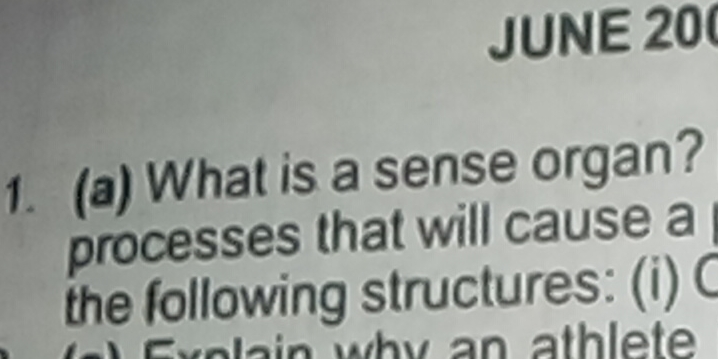What is a sense organ? Explain the processes that will cause a response in the following structures: (i) Explain why an athlete...

Understand the Problem
The question is asking for a definition of a sense organ and the processes related to specific structures. It seeks to clarify both the concept of sense organs and their associated functions.
Answer
A sense organ detects stimuli and conveys signals to the nervous system to initiate a response.
A sense organ is an organ that detects stimuli and conveys impulses to the nervous system. Sensory processes initiate responses when sense organs detect stimuli like light, sound, and pressure, resulting in an appropriate physiological response.
Answer for screen readers
A sense organ is an organ that detects stimuli and conveys impulses to the nervous system. Sensory processes initiate responses when sense organs detect stimuli like light, sound, and pressure, resulting in an appropriate physiological response.
More Information
Sense organs include eyes, ears, nose, tongue, and skin. They play crucial roles in perceiving sensory information and sending it to the brain. This complex process involves receptor cells converting stimuli into nerve impulses.
Tips
A common mistake is confusing the function of sensory organs with motor response organs. Remember that sensory organs detect stimuli, which are then processed by the nervous system to produce a response.
Sources
- What Are the Five Sense Organs? Their Functions and How to Keep Them Healthy - redcliffelabs.com
- What is Sense Organs? - Quora - quora.com
- The 5 Senses: Organs, Functions & Examples - Lesson - Study.com - study.com
AI-generated content may contain errors. Please verify critical information